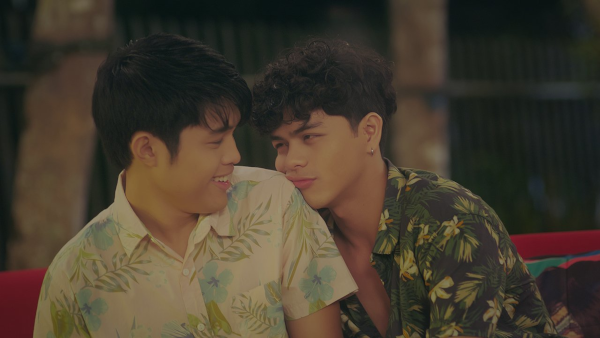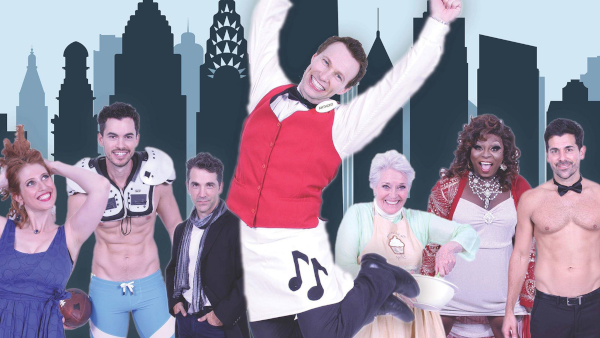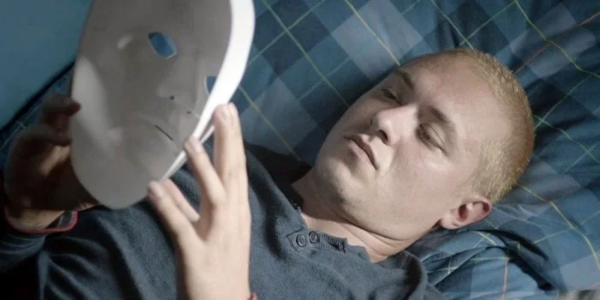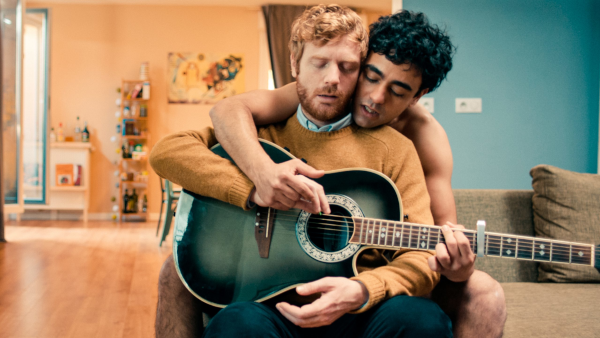
The Boys in the Band is an unflinching depiction of the devastating aftermath that comes from a society that accepts homophobia and racism without apology. Parts of this film were cringeworthy when it came out in 1970 and are shockingly repugnant today. This is not for the faint of heart or the easily offended. This was a difficult film to watch when it came out, and is even more so now, and it’s meant to be that way.
It starts out almost innocently, with Michael getting ready to throw a party for his friend, Harold. We see Michael shopping and the soon-to-be guests going about their day. It all seems rather quaint, then Donald arrives and Michael’s bitter side begins to show.
Like most prejudice, it begins with Michael’s humor. He chides Donald for seeing a psychiatrist, goofing on men’s beauty products, gay men doing impressions of Judy Garland, and aging. There are few times in the opening scene that Michael has a bit of self-discovery, but he brushes it off with a sigh and changes the subject. The dialog and acting is so on point that you don’t even realize you’re being set up for tragedy. And so, the slow burn begins.
The acting in The Boys in the Band couldn’t be better. Friedkin (The Exorcist, The French Connection) used the cast from the original off Broadway run, so they had deep understanding of their characters.
There is Donald (Fredrick Combs), the underachieving everyday gay man; Hank (Laurence Luckinbill), the closeted schoolteacher; Larry (Keith Prentice), the promiscuous fashion photographer; Emory (Cliff Gorman), the flamboyant queen; Bernard (Reuben Greene), the gay African American who lives with the double whammy of being black and gay in the 1970s; Alan McCarthy (Peter White), the heterosexual dealing with marital issues; Harold (Leonard Frey), the age and beauty obsessed ex-ice skater and guest of honor; “Cowboy” (Robert La Tourneaux), hustler, gift, object of desire; and Michael (Kenneth Nelson), the self-hating alcoholic host.
Leonard Frey is so perfect in his role as Harold that I can’t imagine anyone else playing him. Harold was a professional ice skater, and every move he makes shows the grace and elegance of the sport. He stands slowly and with purpose and speaks with the same precision. While the room is in turmoil and disarray, Harold is calm and allows himself to be the observer. He is the eye of the hurricane.
The other observer is Alan McCarthy, the only character with a full name. The difference between Harold and Alan is that Alan is not only an outsider, but he’s also the catalyst for the drama. Alan’s reason for his arrival is that he’s distraught and needs to talk to someone, and that someone is his old college pal Michael.
Alan’s arrive to a party full of gay men is priceless. He looks shocked, as if he can’t believe his own eyes. After all, it’s 1968 and he’s a straight man, and Michael has never come out to him.
And this brings us to Michael, the pot stirrer. Without Michael there would be no drama. Michael is so full of self-loathing that he’ll do whatever it takes to keep from facing it. He shops, travels, drinks, and acts out. And Michael has already begun drinking when Alan is rushed up to the bedroom so the two can have a tête-à-tête.
Once alone, Alan confesses to Michael that he’s been thinking of leaving his wife and breaks down in tears. He can’t bring himself to explain why, and Michael jumps to the conclusion that it’s because he can’t admit that he’s gay. After all, Michael thinks Alan has the perfect life, and the only thing that could destroy such happiness is being homosexual. And if Alan can’t face that about himself, then Michael is going to make him face it.
And from here Michael becomes a hateful ball of self-destruction. He spends the rest of the movie trying to force his guests to see how awful their lives are while trying to force Alan into admitting that he’s gay. And in the middle of all the crying, screaming, chaos, and regret is Harold, calmly thumbing through a book on the films of Joan Crawford.
The Boys in the Band would be unwatchable if it wasn’t for the fantastic acting throughout. And although nothing is truly resolved by the end, it feels complete.
You can read my review of the 2020 remake made for Netflix here: Movie Review: The Boys in the Band (2020)




3 responses to “Movie Review: The Boys in the Band (1970)”
[…] I am not going to compare the 2020 remake to the original 1970 version, so feel free to read my post on the original 1970 version here: Movie Review: The Boys in the Band (1970). […]
[…] You can read my review of The Boys in the Band here. […]
[…] You can read my review of The Boys in the Band here. […]